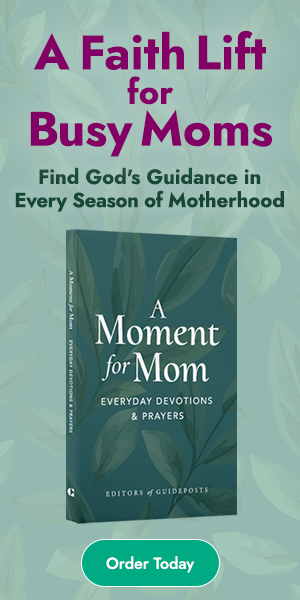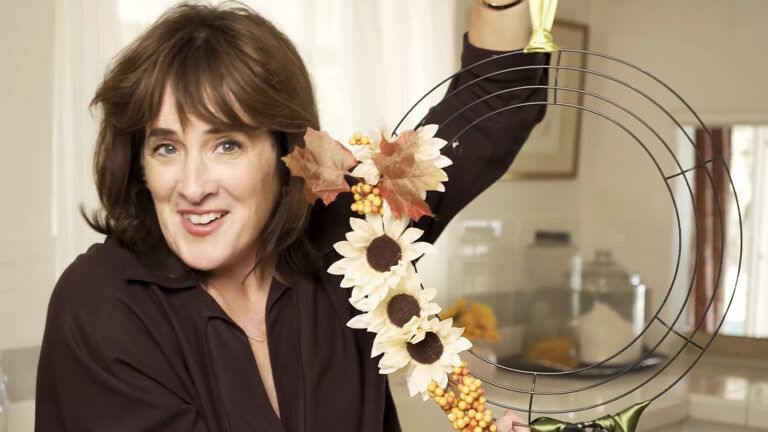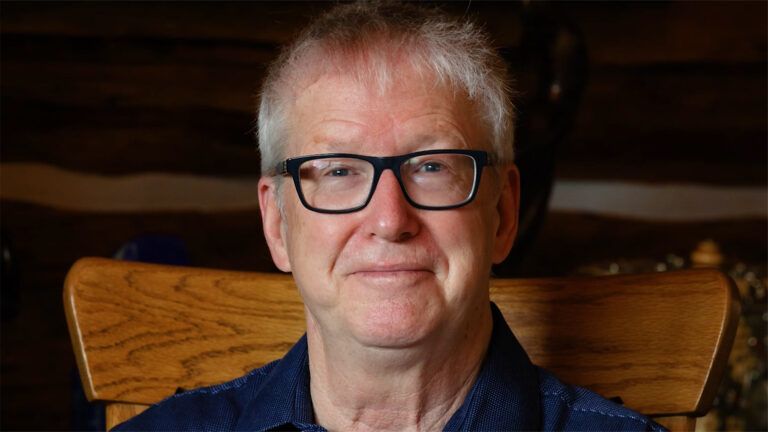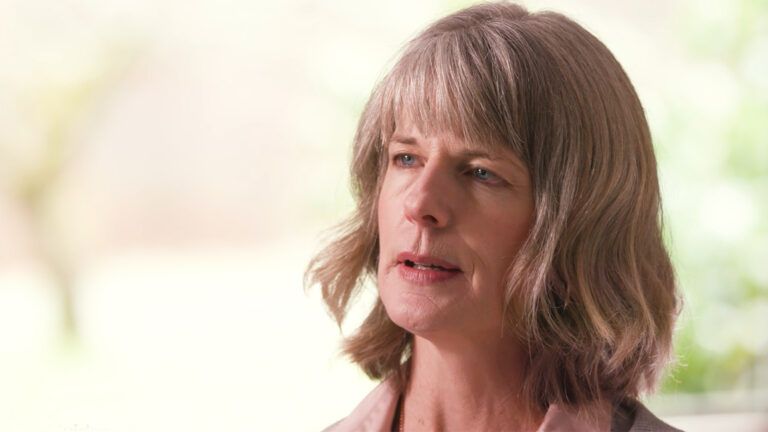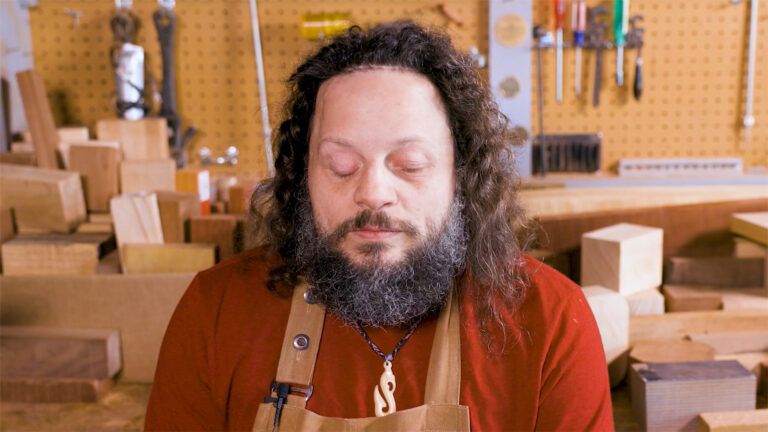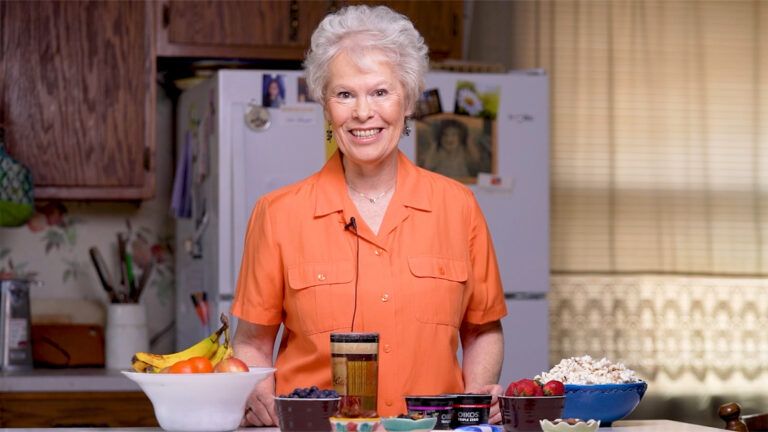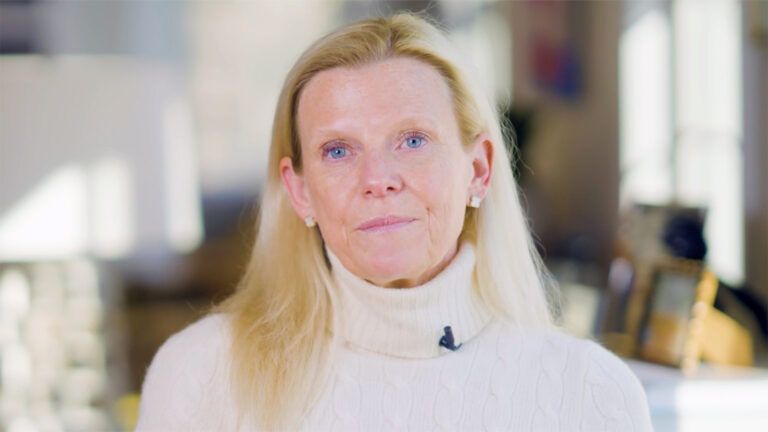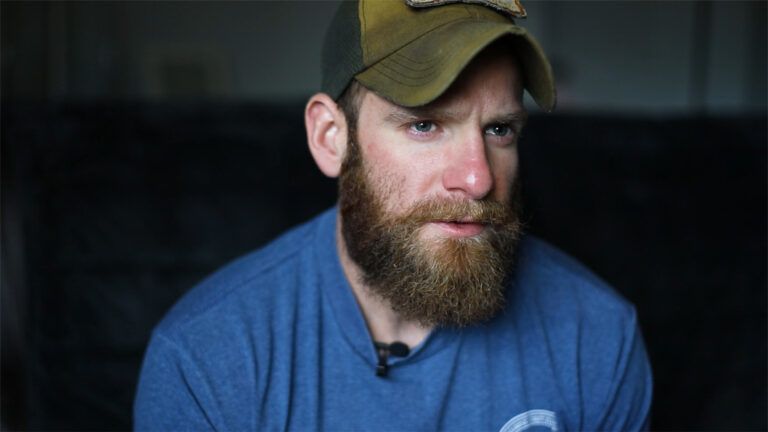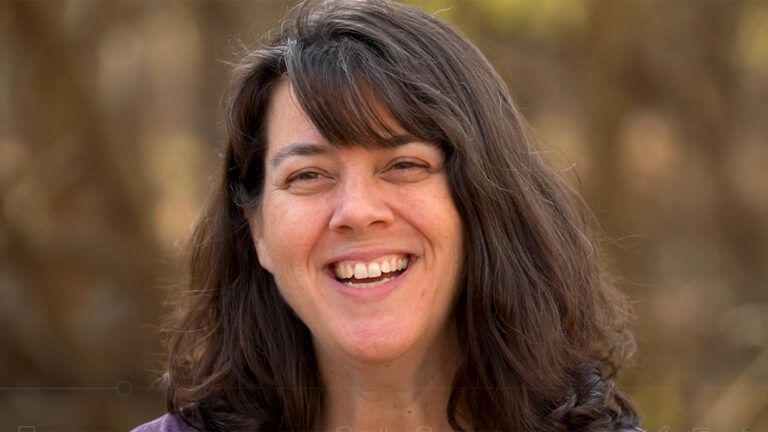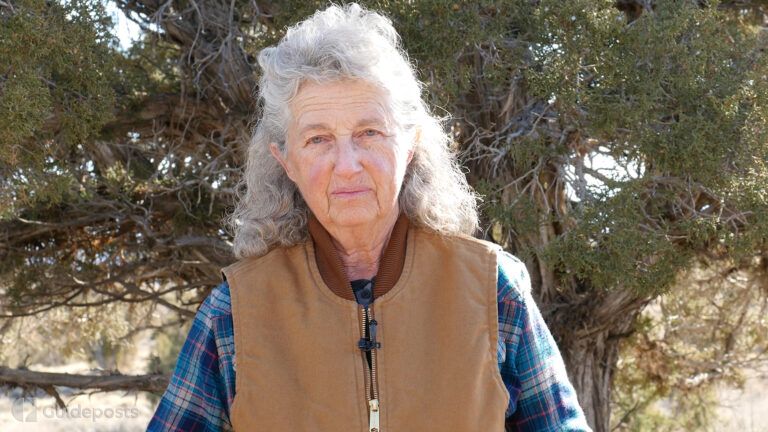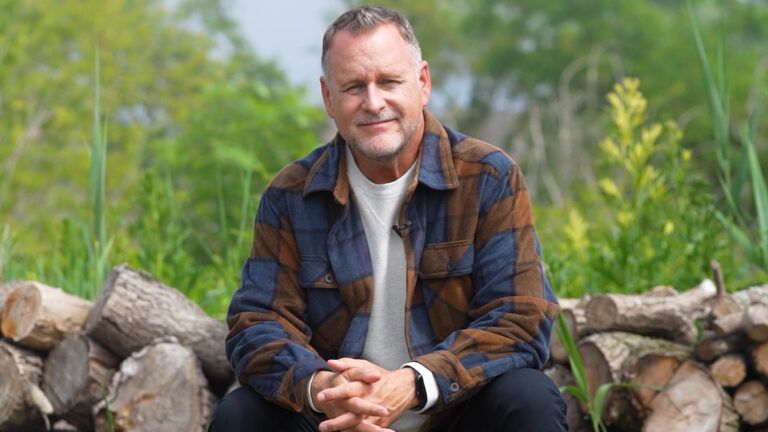
Tags
For This Marine Veteran, Running Is Therapy
In this series of videos, Micah Herndon, who served in both Iraq and Afghanistan, shares how long-distance running has helped him in dealing with PTSD and survivor’s guilt.
View Transcript
Guideposts Video: Inspiring True Stories
Micah Herndon on Running as Therapy
Hi, my name’s Micah Herndon. I’m a Marine, and I served in Iraq and Afghanistan. And to help me cope with my PTSD and my survivor’s guilt, I run in honor of my fallen brothers that sacrificed everything for this country.
I joined the Marines in 2007 and my first deployment was to Iraq. My second deployment was the Afghanistan deployment; that was the tougher out of the two.
We encountered three IEDs while I was over there. And the first IED that we did take was a 400-pound IED. Two were killed on impact, Mark D. Juarez and Rupert Hamer—he was a British journalist. Matthew Ballard, he’s one of my best friends. He was critically wounded from the waist down. He lost total control of his legs. So I think that goes along into my PTSD and my survivor’s guilt.
After returning back home, it’s called the honeymoon phase. You’re just happy to be alive. And right when we got back from deployment, that’s where I met my wife, Sarah. So she really got the best version of me.
They say that the honeymoon phase really wears off and reality hits you about a year and a half later. We got married November 2013, that’s when reality hit myself, with two deployments and what I saw and what I experienced over there. That was one of the lowest points in my entire life.
Right when I thought about committing suicide, my brothers’ faces that I did lose over there—Juarez, Hamer, Ballard—their faces popped up in my vision and in my mind. It kind of made me realize I would be doing them wrong, doing them injustice, doing their families wrong, if I did go through with that act, and also my own family. Because they didn’t have a choice, and I’m here back home safe, and I have my health and I have a choice.
So right then, I knew I had to find something to help the pain. I knew I had to find something to cope. Then I started researching best ways to cope with PTSD, best ways to cope with survivor’s guilt, and the one thing that really stuck out to me was running. Every site that I did see, they always talked about the runner’s high.
I knew I had to give it a try, ’cause I was kind of, I was kind of at rock bottom, and anything would help at this point. I started to notice my symptoms were not as intense, and I did start to notice a little bit of change as I was progressing with my mileage and my minutes.
From there I was obsessed with it. Running has definitely been my outlet to help deal with my PTSD and my survivor’s guilt. I do encourage other vets that are having problems [to] find their own outlet, find their own way of coping. Mine just so happened to be running.
What helps me push through the pain or whatever I’m dealing with at that time is repeating my brothers’ last names that we did lose: Ballard, Hamer, Juarez. It brings me back to center, and it really helps me focus on why I’m doing this.
What better way for me to make this a positive than to honor their names, to honor their family and their story, to keep their memories alive.
I did run my first official race, it was a half marathon. My wife, she got me the tags that say their last names as a present before that race. She writes the names on my hands and my bib, just as a quick visual that I can just peek down when I’m running. Now, if anyone asked about them, throughout the race or when I’m there, they can hear their story from me telling them or just see their names.
I never envisioned myself running the actual Boston Marathon. Just the Boston course itself, it’s pretty tricky. You don’t really know the magnitude of how hard Boston is until you’re actually running that actual race. I was pacing really good, underneath my goal, and I just had a couple more miles to go. But mile 20, that’s when my right leg locked up.
I knew I could either give up, but that’s not in my DNA. I kind of regrouped myself, grounded myself, saying my brothers’ names—Ballard, Hamer, Juarez.
Both legs locked up at mile 22 and I knew I had 4.2 miles left to do. Those were my hardest and most painful 4.2 miles I’ve ever ran in my entire life. It was probably 175 yards that my legs just stopped working completely. At that point, again, the training kicked in, and it’s adapt and overcome. The next best thing I can still do to help get to that finish line is crawl, using elbows and just kind of squirming like a worm, pretty much. I did that until my right leg loosened up and I was able to crawl the rest of the way.
The main thing that really did help me push through was my brothers that I do run for and their story. I am happy that everyone’s seen the bigger picture out of all this. They’re actually seeing a Marine that has struggled with deployment and coming back home, just like many other vets do.
Their names and their stories are the reason why I do all this. I never asked for it, I never wanted it, but if someone’s going to give me the platform to do it, I’m going to tell their story and repeat their names so everyone can hear.
What I hope that people get out of my story is that everyone has a strength within them, the ability to adapt and overcome any situation, mentally, physically, emotionally. Everyone has that in them. You have to find whatever works for you and grab onto it and go with it.
That’s what I was able to do with running, for my darkest times, I wanted to end it all. I was able to chip away at it, it takes… It’s day by day, one day at a time. To be to pull yourself out from that dark spot, it doesn’t get any better than that. I’m just happy that the whole world was able to get their story and remember their names.
On Completing the Boston Marathon
I never envisioned myself running the actual Boston Marathon. Really, what got my attention with Boston was the Boston bombing in 2013. Those people, the spectators, that really hit home with me, because I knew exactly what it’s like to go through an explosion. That’s when I fell in love with the city of Boston, because it just shows the community and the love that they do have for each other.
My first marathon I did run was Canton. I qualified for Boston with my first marathon. So I knew right then it was in the cards. I absolutely had to run. The Boston course itself is pretty tricky. You don’t really know the magnitude of how hard Boston is, until you actually run the actual race. So the locals and the people that’ve run Boston before, they kind of have a game plan. For your first time, it’s kind of a lot to take in, ’cause it’s one of the most run in the world.
Me, being such a rookie runner, I was kind of shellshocked a little bit. The first, about, 10 miles, it’s all downhill. Downhill creates…a lot of people, they pace out too fast, so I knew I had a pretty good pace going and I was just caught up in the actual experience of Boston and really wasn’t focused on my efficiency.
As you get closer to the finish line, the crowd it just keeps getting louder and louder and louder. That really does help with the whole pushing through, whatever you’re going through at that moment.
Mile 16 through mile 21 it’s Heartbreak Hill. That’s when runners hit the wall. I was pacing really good, underneath my goal. I was almost through the whole Heartbreak Hill section and just had a couple more miles to go, and once you get over, you crest Heartbreak Hill, it’s smooth sailings from there. But mile 20, you know, that’s when my right leg locked up. It was my calf, my quad, my hamstring. If anyone’s had a cramp before, how that feels, it’s kind of devastating. So I was kind of running with that leg straight for two miles.
Mile 22 hit and the same thing happened in my left leg. And so now both legs were locked up. I kind of ran like Forrest Gump when he had those braces on, just straight-legged and I really was going at a power walker’s pace, not even a jog.
The reason why I do run is for my therapy. To help cope with PTSD and survivor’s guilt, but also in my brothers’ names that I do run for and their story. I felt like I let them down. So mentally, it was mental warfare at that point. That was the lowest point of the race.
I knew I could either give up, but that’s not in my DNA, I’ve never given up on anything. You know, being a Marine, what’s instilled in us from bootcamp is to death. But there is one thing that I knew I was going to do and that was to finish the race, by myself. I didn’t want any help.
The next best thing I could still do to help get to that finish line is to crawl. Knees and elbows, just kind of squirming like a worm pretty much. I did that until my right leg loosened up and I was able to crawl the rest of the way.
Everyone has a strength within them. The ability to adapt and overcome any situation. Mentally, physically, emotionally, everyone has that in them. You have to find whatever works for you and grab onto it and go with it. To be able to pull yourself out from that dark spot, it doesn’t get any better than that.
On the Song That Reassured Him
That first IED that we did take in Afghanistan was January 9th, 2010. Later on, maybe a month month and a half later, we were involved in an operation. We were escorting packs and supplies to the main hub. So we were traveling down that road, two o’clock in the morning, pitch black.
It was a 50-pound bomb, pressure plate. Extremely lucky, everyone, there was no casualties and what not. I got injured, that was the hardest I’ve ever been hit in my entire life. It knocked me out, they said, for three minutes. They said I suffered a grade three concussion.
First instinct that I went to was to check myself. Check to see if I still had my legs still, my arms. I had everything. At that very moment, that was the happiest moment of my entire life. I had just survived something that was set out to kill me. When you survive something like that, it’s a very surreal feeling. I started laughing uncontrollably because I was so happy.
For every convoy, for every mission in Iraq and Afghanistan, we did listen to music on an iPod player. For whatever reason…I don’t know how that iPod survived that blast, but it was still playing. And I was still kind of dazed and shook from the whole blast.
My doc was checking my vitals, making sure I was all right. I heard the one song that was playing…really, that was all I could hear. So the heartbeat, breathing and of course that song was “In the Arms of an Angel.” Pretty weird that that song was playing at that time.
Our docs, you know they heal us, they save our lives. It kind of just fit that moment. Opened my eyes to a lot of things because before that, being deployed and what I saw up to that point, you kind of start questioning your faith in God. I think He answered me right there. I was here for a reason.
After he checked me, that Sarah McLachlan song was on, I got out of my vehicle. I saw what it did to the truck, and that’s when it kinda hit me. Right there I just lost it uncontrollably. I just broke down on my knees and stared balling.
Two IEDs I survived. I’m whole. I got my arms and my legs. I’m definitely here for a reason. After that, it makes you wonder what that reason is. I know a little bit of the reason why I’m still here: Me and my wife just had a little baby girl. I think He kept me here for her.
On the Inspiring Angel Charm His Mom Gave Him
Even from a young age, my mom, she’s always been my hero, someone that I’ve always looked up to with what she’s had to deal with in her life. Losing two husbands, raising five kids pretty much on her own. She’s the strongest woman that I know.
From a young age, she’s always had this hug thing that she’s always done. She reaches her arms out, if you could reach your arms out further than her, that means you loved her more. Well, I didn’t know this at the time because I was so young, she was playing a little trick on us. She would always push forward with them so that makes you have to, in return, pull them back. So no matter what, she’s always gonna have an advantage.
I didn’t realize that at that point, but as I got a little bit older, I started noticing her try to do that, I’m like, “What are you doing?” So, at that point I found out her little trick and I was able to finally reach out further than her.
That was a running joke for a while. Every time we said bye, or whatever, we would do that. It wasn’t no different from my first deployment when I said bye to her that last time. She’d stretch her arms out to hug, and then she gave me this charm. It was a pretty cool charm. It was an angel with its arms spread out, and its wings spread out. Engraved in it it said, “I love you this much.”
That kind of just reminded me of that whole thing she’s done to all of us since we were little kids. I had that charm with me, I still have it today. That thing’s been around the world 2 1/2 times, with me on all 400 convoys around.
It even has the original cordage that it came with. I just kinda loop this through my flak jacket. I had it up in my turret with me on every mission, gotta say it’s my lucky charm. The engraving says, “I love you this much”, and it kind of just, it represents that whole thing that she’s been doing since we were little kids.
